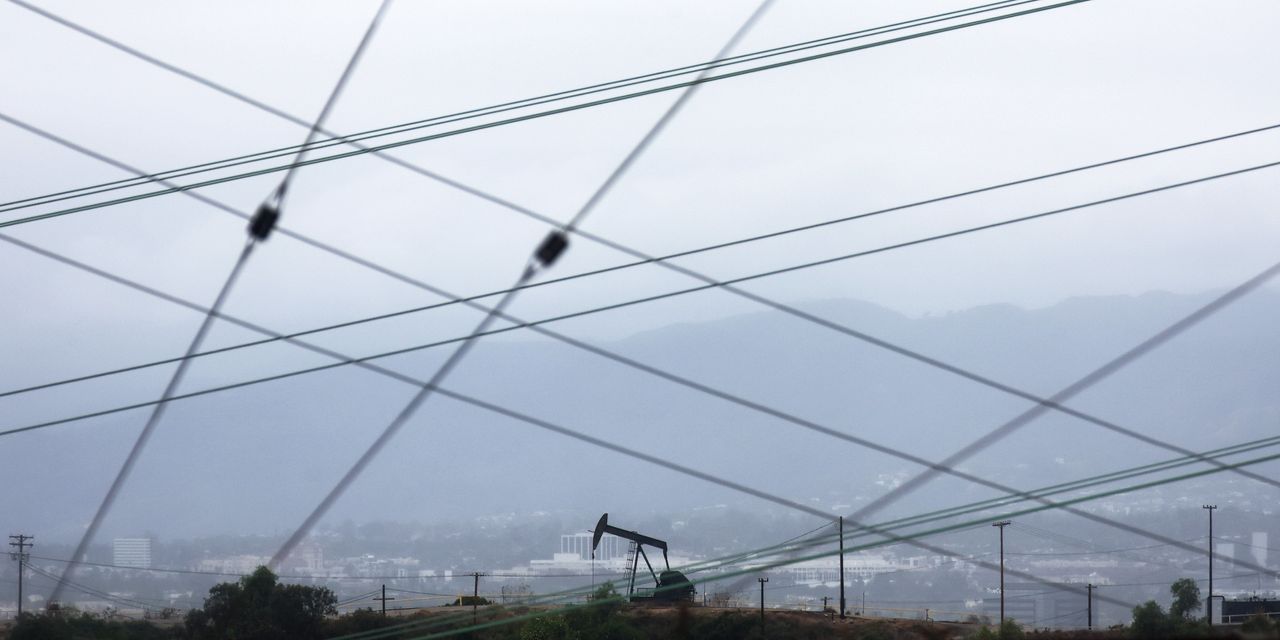Oil futures fell Wednesday morning, extending a slide that analysts tied to fears over the outlook for global economic growth and surging COVID cases in China.
Crude oil kicked off 2023 with sharp losses Tuesday after logging yearly gains in 2022.
Price action
-
West Texas Intermediate crude for February delivery
CL.1,
-3.03%
CL00,
-3.03%
CLG23,
-3.03%
fell $1.89, or 2.5%, to $75.04 a barrel on the New York Mercantile Exchange, after the U.S. benchmark ended Tuesday at its lowest since Dec. 20. -
March Brent
BRN00,
-3.09%
BRNH23,
-3.09% ,
the global benchmark, declined $2.03, or 2.5%, to $80.07 a barrel on ICE Futures Europe. It closed Tuesday at its lowest since Dec. 22 after posting the biggest one-day drop since September. -
Back on Nymex, February gasoline
RBG23,
-3.21%
fell 2.7% to $2.297 a gallon, while February heating oil
HOG23,
-3.07%
shed 2.3% to $3.017 a gallon. -
February natural gas
NGG23,
-0.23%
rose 1.2% to $3.685 per million British thermal units.
Market drivers
Aggressive tightening of monetary policy by the Federal Reserve and other major central banks is driving fears of a global economic slowdown. Those concerns have weighed on crude prices and overall market sentiment, analysts said.
“We continue to see lower prices in the first half of 2023 as negative economic activity grips the world economy,” said Peter Cardillo, chief market economist at Spartan Capital Securities, in a note.
While OPEC+ — made up of the Organization of the Petroleum Exporting Countries and its Russia-led allies — will make noise about production cuts, declining global growth will lean on market demand and challenge the group’s unity, Cardillo said.
Investors, meanwhile, have weighed optimism over the lifting of China’s strict COVID curbs, which were seen keeping a lid on demand from one of the world’s largest energy consumers, versus concerns over soaring infections.
The European Union’s Integrated Political Crisis Response group was expected on Wednesday to decide whether to impose EU-wide entry requirements from China. China has pushed back with a threat of countermeasures, as the Associated Press reported.
An EU offer of help, including vaccine donations, also appeared to be rejected, with Beijing insisting the situation was “under control” and medical provisions “in adequate supply,” government spokesperson Mao Ning said.
Coronavirus tally: China awaits EU decision on COVID test requirements for Chinese travelers, rejects offers of help

